Discover The China History Podcast
The China History Podcast

The China History Podcast
Author: Laszlo Montgomery
Subscribed: 10,371Played: 195,531Subscribe
Share
Copyright © Teacup Media 2024 / LASZLO MONTGOMERY
Description
Since 2010, The China History Podcast, presented by Laszlo Montgomery brings you over 350 episodes of curated topics from China's antiquity to modern times.
447 Episodes
Reverse
Here's another quickie for you, only a half hour long. It seems not only are the portions at fast-food chains shrinking, so are the CHP episodes. Thanks to a team of amateur historians, WWII enthusiasts, and survivors, this interesting tale can now be told. It concerns a forgotten man named Mr. Lam Ping Yu 林炳堯, who left behind a WWII diary from 1944 that was rediscovered by chance in 2015. I hope you'll enjoy this story. For more info, you can visit the website: https://www.dday.hk/. Thanks to Mr. John Mak, Mr. Angus Hui, and Mr. Jackson Chan for telling me about this story in 2024. Photo Credit: Thanks to Mr. Frank Tsou.
This is a rather long episode, running at just about one hour. The Guangxi Massacre is one of those dark chapters from the Cultural Revolution. Down in the Guangxi Zhuang Autonomous Region, it was particularly dark. I was listening to Stanford Professor of Anthropology Andrew G. Walder on the New Books Network discussing his 2023 book covering this topic. That gave me the initial inspiration. Dr. Walder's book and a few others are very disturbing to read. I didn't dwell on some of the more gory and grotesque parts of this story. Hoowever, the books are all rather free with their descriptions of some of the atrocities committed. There's one excerpt I did include in the Patreon and CHP Premium audio. But I won't be including it in the regular CHP feed. This episode is particularly interesting because it involves a province other than the usual suspects along the coast. And it stars Wei Guoqing 韦国清, someone I'm guessing doesn't ring a bell. Let me know what you think. This was a painful episode to research and present. Suggested Reading: Zheng Yi, “Scarlet Memorial: Tales Of Cannibalism In Modern China https://a.co/d/89TkvH6 Andrew G. Walder, “Civil War in Guangxi: The Cultural Revolution on China's Southern Periphery” https://a.co/d/8XWipif Yang Su, “Collective Killings in Rural China during the Cultural Revolution” https://a.co/d/5BF7C2R New Books in East Asian Studies Podcast featuring Andrew G. Walder: https://pca.st/gh0p9udt Search for The Secret Archives About the Cultural Revolution in Guangxi《廣西文革機密檔案資料》
In this episode, we look at the life of Anson Burlingame, a well-known name in California. During Lincoln's term as president, he was appointed Chief Minister to China, arriving in Beijing in the summer of 1862. Already well-known in the US as a fiery abolitionist and a man who believed everyone should be treated fairly and with all due respect, he sympathized with the Chinese government. When he arrived in post-Opium Wars, post-Treaty of Tianjin/Convention of Beijing China, he used his respected position among the diplomatic community of the treaty powers to fight for a fair deal for China. In a controversial move, he was appointed by the Qing government to lead a mission to the US and the great capitals of Europe to advocate on China's behalf. While in the US, Burlingame championed the signing of a treaty, the first of its kind, that recognized China as an equal sovereign nation. It opened the door to legal Chinese immigration and travel to the US. That ended up becoming the treaty's undoing.
Here's a nice little standalone episode on the life and work of Thomas Wade and Herbert Giles. And you can't mention Herbert Giles without mentioning his son, Lionel Giles. And of course, Robert Morrison must be mentioned as well as all the earliest Western scholars of Sinology going back to Michele Ruggieri. And it wouldn't be fair to only talk about Wade and the two Giles's without giving a nod to their contemporaries elsewhere on the continent and in Asia. So this is a slightly meandering survey of some of the great old sinologists from the 19th century (and early 20th).
This is only a 2-parter, so this exciting episode will bring the curtain down on Lin Biao and his famous "Incident." We resume the story following the 1970 Lushan Plenum. Lin, or Lin's ambitious manipulators, pushed Chairman Mao just a bit too much at this meeting, and he decided to take immediate action. This whole 913 Incident, as you will hear, was a huge embarrassment to the Chinese Communist Party. Therefore, it's not surprising that they circled the wagons and went beyond the call of duty to cover up what could still be covered up. Mao had to be careful. With a history filled with men like Wang Mang, Zhu Wen, Zhao Kuangyin, and Yuan Shikai, he knew he had to watch these generals. So here's all the various fun bits of speculation surrounding the days of September 12-13, 1971. No Beatles references in this episode, though I was tempted to mention that Stella McCartney was born on the exact day of the plane crash that ended Lin Biao's life. Thanks everyone, for listening. This episode was posted to Patreon and CHP Premium back in February. Consider joining. You'd have my everlasting appreciation.
This is Part 1 of a 2-Part series looking at the life of Lin Biao and the actual Lin Biao Incident itself. This bit of history is documented to death. I downloaded a dozen scholarly papers, read a few books, went through my entire library, and gathered as much information as possible. But practically every source ends with "cannot be proved." The Lin Biao Incident is China's version of the Kennedy assassination. So much we know. So much we have no idea. In this Part 1 episode, I cover Lin Biao's early life and how he rose up on Mao's coattails, going back to the Jiangxi Soviet era. I'll take this episode up to the Lushan Plenum of 1970. That was the beginning of the end of Lin Biao. Be looking for Part 2 in a bit. Thanks, everyone.
Just in time for Liberation Day, I'm presenting this timely episode. Back in 1890, with the aim of protecting American companies from foreign competition, tariffs were jacked up significantly. With all the advances in transport, logistics, and new technologies, world trade was shifting into a higher gear. For a few centuries, the Ming and Qing emperors did their damnedest to regulate the invasion of European traders clamoring to do business with Chinese merchants. The foreigners wanted free, open, and unfettered trade with China. By the 1890’s and a few humiliating unequal treaties later, the dream finally came true. That’s when the real problems started. Thanks to Dan Stein for this topic idea we discussed over lunch recently. If you'd like to support the China History Podcast and listen ad-free and get new episodes weeks or months early: CHP Premium: https://teacupmedianetwork.supercast.com/, CHP Patreon: https://www.patreon.com/c/TheChinaHistoryPodcast
This is the second of a two-part mini-series introducing the world of European plant hunting in China. In this episode, we look at some of the more noteworthy names and their accomplishments. After the exploits of Robert Fortune, many other plant hunters followed in his footsteps to China. We'll look at Henry Fletcher Hance, Père David, Augustine Henry, Ernest Wilson, and George Forrest, among others. Thanks to all for for listening. Learn more about your ad choices. Visit megaphone.fm/adchoices
I was afraid I'd barely be able to scrape together enough material for a short episode. Instead, this one is gonna take almost two hours to tell. I hope no one minds that I opted not to drown anyone with Latin names and to go easy on the scientific aspects behind plants. The focus will be on the European and later, American plant hunters who came to China between the 16th and 20th centuries. This episode will look at some of the exploits of the early Jesuit missionaries up through Robert Fortune's four trips to China. Next time in Part 2, all the famous post-Fortune plant hunters will be featured. Be looking for that soon. If you'd like to support the China History Podcast and listen ad-free and get new episodes weeks or months early: CHP Premium: https://teacupmedianetwork.supercast.com/ CHP Patreon: https://www.patreon.com/c/TheChinaHistoryPodcast Learn more about your ad choices. Visit megaphone.fm/adchoices
Calling all fans of podcast great, Lindsay Graham! Here's a sampling of the very popular podcast, History Daily. On History Daily, they do history, daily. Every weekday, host Lindsay Graham (American Scandal, American History Tellers) takes you back in time to explore a momentous event that happened ‘on this day’ in history. Whether it’s to remember the tragedy of December 7th, 1941, the day “that will live in infamy,” or to celebrate that 20th day in July 1969, when humankind reached the moon, History Daily is there to tell you the true stories of the people and events that shaped our world—one day at a time. So if you’re stuck in traffic, bored at work—wherever you are, listen to History Daily to remind yourself that something incredible happened to make that day historic. A co-production from award-winning podcasters Airship and Noiser. LINKS to HISTORY DAILY SPOTIFY: https://open.spotify.com/show/31PSVhUGECv1bdBfPSv3Nf?si=6ed7018e08084034 APPLE: https://podcasts.apple.com/us/podcast/history-daily/id1591095413 Learn more about your ad choices. Visit megaphone.fm/adchoices
Former BBC reporter and master jade carver Andrew Shaw is back. What an informative interview this one turned out to be! I hope you all enjoy this discussion of the history and legends behind jade. I learned quite a bit during this brief talk. I hope you do too. Links to Andrew Shaw's books about jade: "A Jade Treasury" https://a.co/d/f2ynsRF "Jade Life" https://a.co/d/0yvYPbZ CCTV Documentary https://youtu.be/GWxFucq1o60?si=rsMeqqjMgy9Fbrg-
I welcomed Wuhan-based Andrew Shaw onto the CHP to talk about his book. It's all about the plundering of China's cultural treasures and imperial artifacts by not just the British, French, and Americans. It seems everyone got in on the act. Even the local people. It's a miracle there was anything left for Chian's museums. Many of you are familiar with the stories about looting that took place in China between the 1840s and the turn of the century. In Andrew Shaw's book, "Spoil" we'll look at the extent of what happened. And on the next episode, we'll feature Andrew again, this time talking about his new book on the history of jade. That's coming February 16th. Of course, Patreon and CHP Premium subscribers will get to hear it a couple weeks earlier. Here's the link if you're interested. https://www.patreon.com/c/TheChinaHistoryPodcast Amazon Link to "Spoil" by Mr. Andrew Shaw: https://a.co/d/12c6kPF Learn more about your ad choices. Visit megaphone.fm/adchoices
With the Singapore History series out of the way, and 2025 off and running, here's the first special interview episode of the year. Not too long ago, I had the pleasure of interviewing Mr. Joel Bigman, author of a new book called "The Second Journey." If you're familiar with the Ming Dynasty novel "Journey to the West," this one by Joel might sound familiar. You might never look at "Journey to the West" the same way again. This was quite an interesting and unique story that combined two ancient cultures. It's been called “The World’s first Chinese-Jewish Historical Fantasy.” Nuff said. I hope you enjoy this interview. Here's a link to the book: https://a.co/d/9oRyiN8 Learn more about your ad choices. Visit megaphone.fm/adchoices
First of all, to all of you who lasted through the entire series up to this concluding episode, I extend to you, my deepest appreciation. I hope you learned a few things about Singapore. Here it is, the final installment of the series. I worked on this particular episode during my Oct-Nov China-HK-Cambodia trip. I recorded this one in Phnom Penh at the home studio of Dr. Digby James Wren. Digby's a long-time CHP listener and I gave him a ring when I hit town. Fortunately, he was in PP and generously spent a couple of days with me showing me around the city. The series finishes off with the most recent history of Singapore, including the Goh Chok Tong and Lee Hsien Loong period from 1990-2024. Everything from the 1970s to the present day is also squeezed into Part 10. Many of you might remember some of these blasts from the past. I'll also look at Singapore-PRC relations and how things developed in recent decades. This final episode will be released on January 19, 2025. I recorded it at Digby Wren's studio in early November and it's been available on my Patreon and CHP Premium channels since then. And now finally, here it is. A special thanks to all Singaporeans and expats there who wrote to me over the past few months with your kind words. Special thanks to Dr. Digby James Wren for allowing me the use of his Phnom Penh Studio! Find him at: https://substack.com/@thechairlive https://longmekong.substack.com/ Learn more about your ad choices. Visit megaphone.fm/adchoices
In its hour of need, quite a few leaders rose to the occasion in Singapore. Lee Kuan Yew didn't transform the nation by himself. Last time we saw how S. Rajaratnam carried the flag around the world and advanced Singapore diplomatically. In this episode, I'll also introduce Dutch economist Dr. Albert Winsemius and his good advice. Winsemius suggested a number of priorities for Singapore to gain some economic traction. The man who had to make these ideas happen in real life was Dr. Goh Keng Swee. We'll look at Dr. Goh's life and contribution to Singapore's first decades as a country. He served in several ministries of the government and made profound changes wherever he served. We'll close out the episode with the retirement of the first generation of Singapore leaders. We'll conclude the series next time in Part 10 where we'll take things up to our day. Learn more about your ad choices. Visit megaphone.fm/adchoices
We left off last time with Singapore being granted sovereignty by Britain on June 3, 1959, and Tunku Abdul Rahman’s “Grand Design” speech concerning a merger between Malaysia and Singapore. Lee Kuan Yew took this pro-merger message directly to the people of Singapore. We’ll see how Lee deals with the political left by launching Operation Coldstore on February 2, 1963. Once the merger was completed, Singapore and Malaysia gave it their best shot to make it work. Happening concurrently with this sensitive time in Singapore’s history, Indonesia’s President Sukarno, in May of 1964 spoke out against the merger and began the period known as Konfrontasi or confrontation. We’ll see how things weren’t fated to succeed as the two leaders envisioned. Both The Tunku and the PAP, despite promises not to get mixed up in each others’ politics, fielded their own candidates in each other’s election. The heat started to rise and tempers flared, leading to riots in July and September 1964. We’ll also see how the March 1965 bombing of MacDonald House also created a frightening atmosphere in Singapore. We close with the debate over privileges enjoyed by indigenous Malays in Article 153 of the Constitution and how it conflicted with Lee Kuan Yew’s concept of a Malaysian Malaysia. We’ll finish things off with the exit of Singapore from the Federation of Malaysia and its independence on August 9, 1965. We’ll close the episode with an excerpt from one of Singapore’s founding father S. Rajaratnam’s speech before the United Nations. Irene Ng books of S. Rajaratnam: Amazon Link - https://a.co/d/eFD4f4g Learn more about your ad choices. Visit megaphone.fm/adchoices
Post-WWII Singapore was a time that was loaded with historical events that shaped how matters would unfold throughout the 1950s and into the 1960s. The matter of how to handle the future of Malaya and Singapore begins to be seriously discussed and hotly debated. To showcase what the British and political leaders in Malaya and Singapore were up against, we'll first review the events of the 1950 Maria Hertogh case and the disturbances that followed. In this episode we'll begin to explore the early life of the most consequential leader in Singapore's history and in the greater Southeast Asian scene, Mr. Lee Kuan Yew. His early life, including his marriage to Mrs. Kwa Geok Choo, will be introduced. In the early 1950s, Mr. and Mrs. Lee returned from the UK and began their law careers. This led directly to Lee Kuan Yew's involvement in local Singaporean politics and the later founding, in 1954, of the PAP (People's Action Party). The elections of 1948, 1955, and 1959 will also be presented and how the results shaped the future of Singapore politics. Events will unfold that will contribute to Lee Kuan Yew's rise as the leading voice in Singapore's politics and independence. Other major figures from this time will also be introduced such as David Marshall, Lim Yew Hock, Lim Chin Siong, Fong, Swee Suan, and Ong Eng Guan. We'll close with Tunku Abdul Rahman's May 1961 "Grand Design" speech and how this became a game changer as far as how to handle the potential merger of Malaya and Singapore. This will all be introduced next time in Part 8. Thanks to all of you who have kindly supported me by signing up for my Patreon. All ten episodes are already available there. You have my deepest appreciation. https://www.patreon.com/c/TheChinaHistoryPodcast Learn more about your ad choices. Visit megaphone.fm/adchoices
In this episode, we see how Japan marched and bicycled their way across the Johor Strait and proceeded to quickly defeat the British Commonwealth troops. Then we see how Japan carried out a brutal and repressive occupation. Massacres at Alexandra Hospital and against the local Chinese residents of Singapore (Sook Ching Massacre) will also be introduced. After Japan's defeat, the British will attempt to resume business as usual. We'll see how the independence movement in Malaya had other plans and why the Malayan Union failed. In Singapore too, the politicians and the people had other aspirations than what the British had in mind. A new leader will emerge in Singapore who we we'll look at in the next few episodes. His name was Lee Kuan Yew.
Although all kinds of tension brewed beneath the surface, the mid to late 19th Century saw a continued bonanza for Singapore. A prosperous combination of hard-working men and women, fearless entrepreneurs, and fortunes made in tin, rubber, and oil refining turned Singapore into the best thing to happen for the British Empire since Trafalgar, or maybe even the defeat of the Spanish Armada. World events, new technologies, and geopolitical shakeups all happened in such a way that Singapore benefited. Today's episode will take us up to 1942 and the fall of Singapore to the Japanese Army. Next time we'll see what happened after that. Patreon: https://www.patreon.com/TeacupMedia CHP Premium: https://teacupmedia.supercast.com/ Donate: https://www.paypal.com/paypalme/chinahistorypodcast Learn more about your ad choices. Visit megaphone.fm/adchoices
Part 4 continues with the aftermath of the 1824 Treaty of London. John Crawfurd takes over from a disgraced William Farquhar as First Resident. Singapore commences its never-ending building and infrastructure process. The Straits Settlements are created in 1826. With a spike in labor demand and with slavery recently abolished, the East India Company comes up with a novel solution. Up in Johor, Daing Ibrahim takes over as the new Temenggong and becomes a ruler that the East India Company can work with. The majority Teochew and Hokkien communities start to organize around their own community leaders. Gutta-Percha is discovered and for the first time Singapore gets to surf a nice wave of prosperity as this raw material’s discovery coincides with a massive demand from a new technological innovation. Alongside all this growth in commerce emerges several secret societies who, like their overseas counterparts, provide a mixture of good and evil across Chinese society. Tin is discovered in 1848 in Perak State. Singapore gets a piece of this action as well. With the EIC’s fortunes sinking, Singapore’s leaders start to lobby Parliament in London for Crown Colony status and to scrape the despised East India Company management from the bottom of their shoe. Communal strife starts to break out with regularity. This will continue in various forms all the way into the 20th century. We close things out by presenting the life and career of William A. Pickering, an extraordinary person in his day. I invite you to support me and my work by subscribing to my Patreon Page at https://www.patreon.com/c/TheChinaHistoryPodcast You’ll get all these episodes long before they’re released to the podcasting public. I also produce occasional bonus content. I don’t post too much to social media. But I am extremely active chit-chatting with Patreon members and CHP friends of the show all day and night on the Patreon site, on WeChat, WhatsApp, email, Signal, and a bunch of other platforms. Thanks for considering. Learn more about your ad choices. Visit megaphone.fm/adchoices
 United States
United States





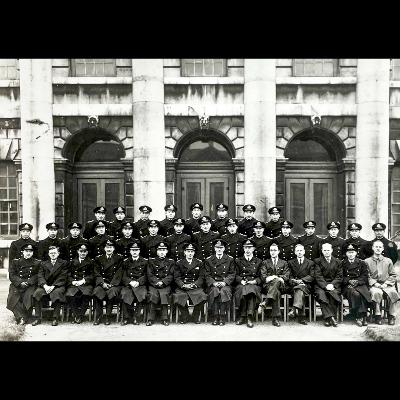

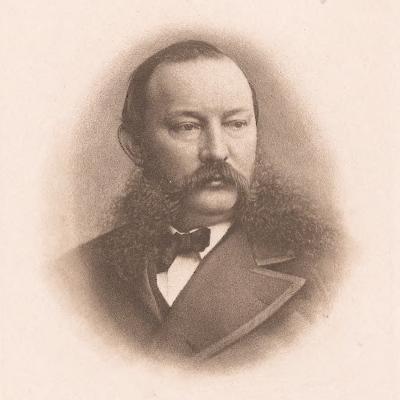
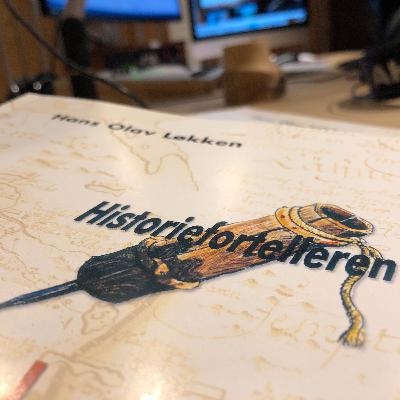


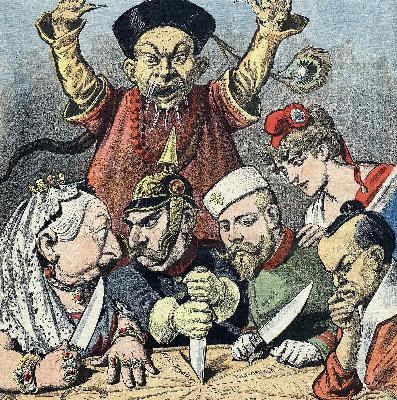
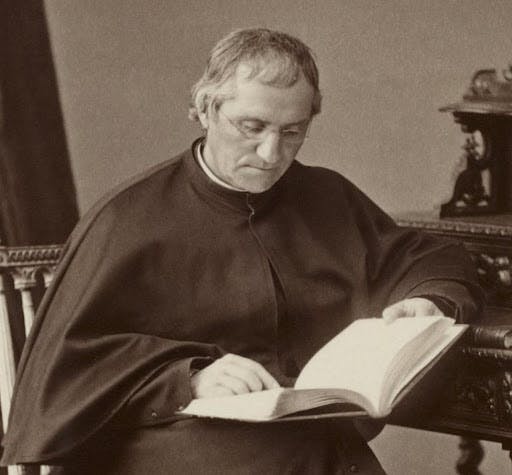
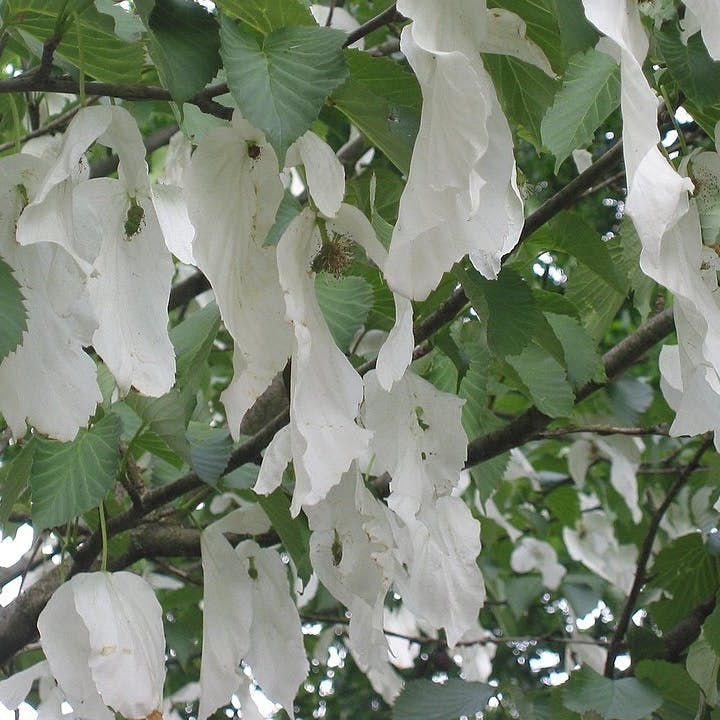



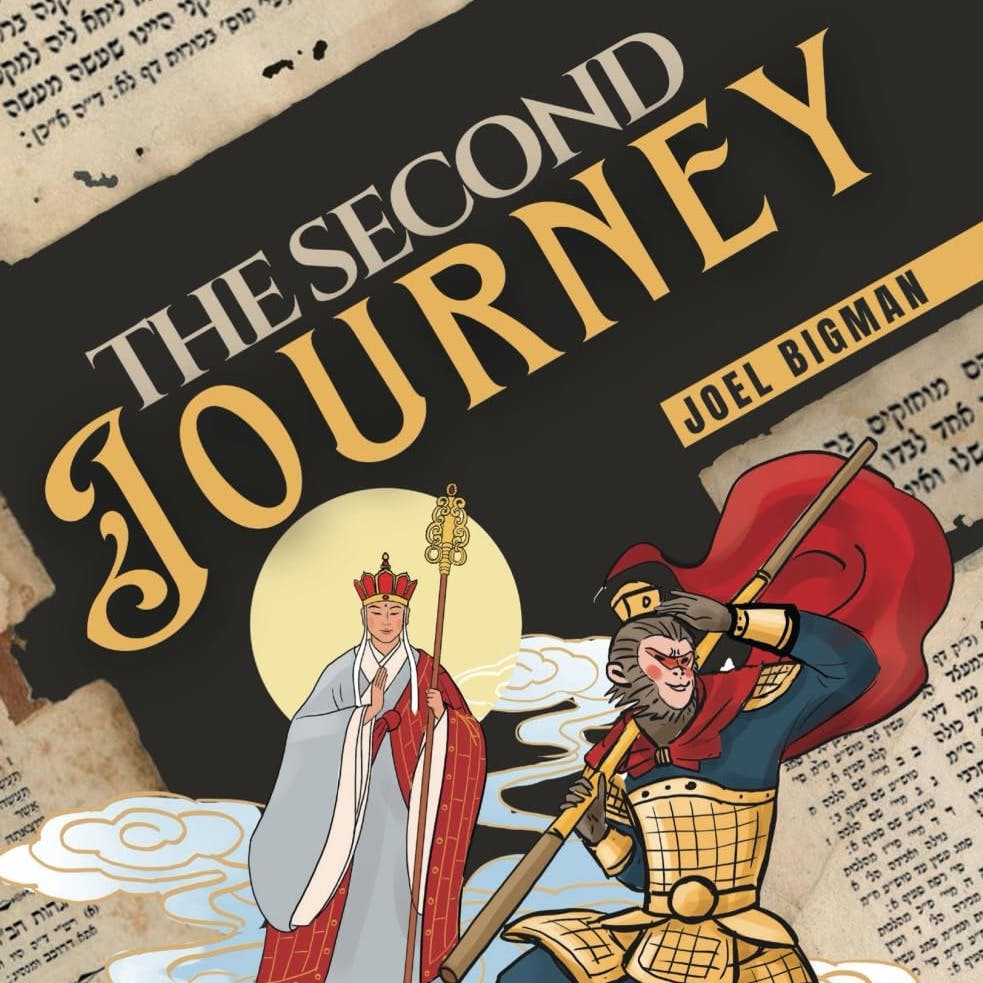

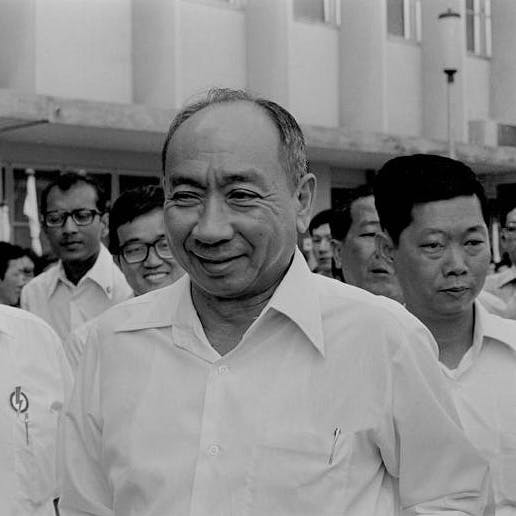
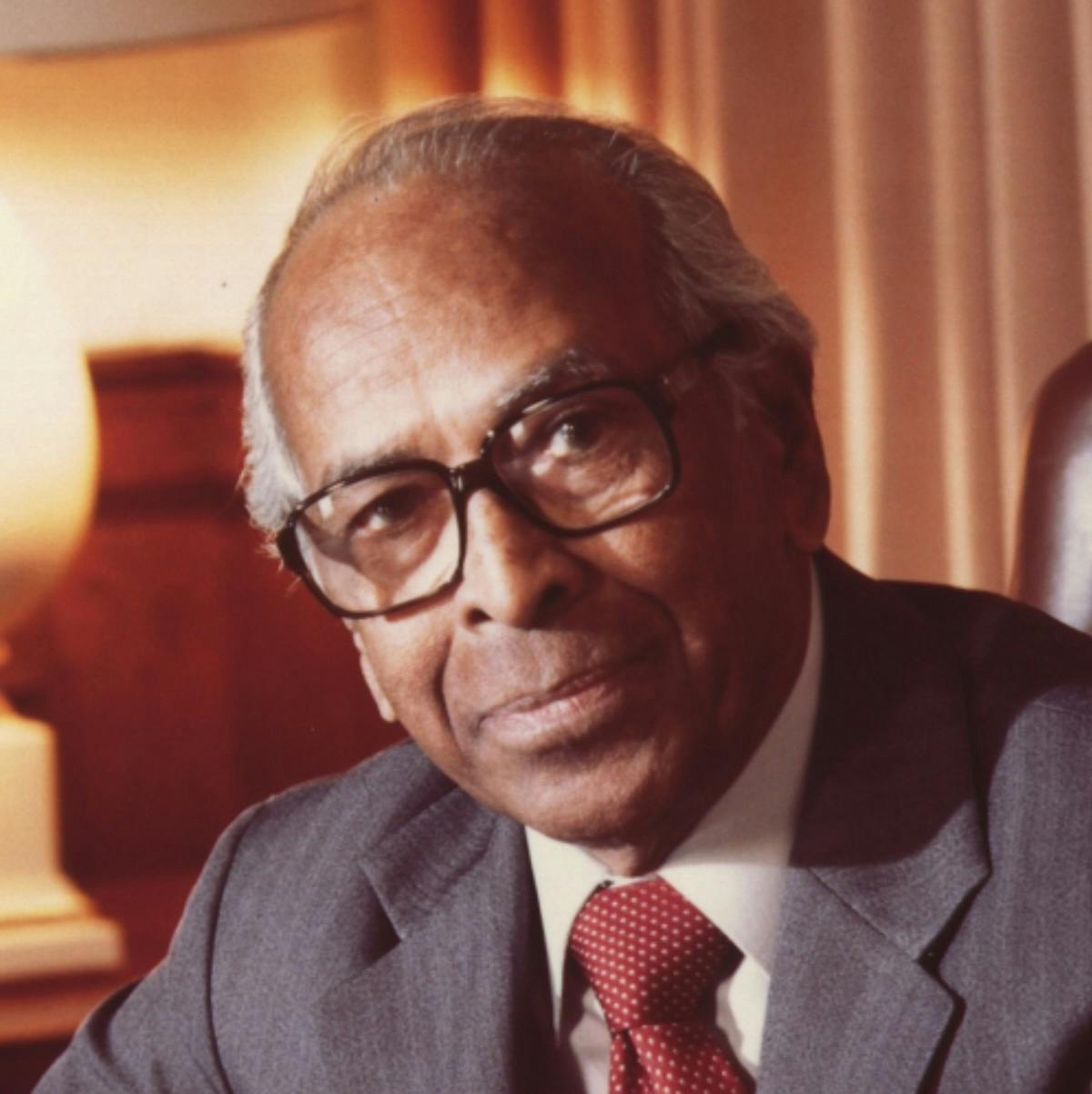
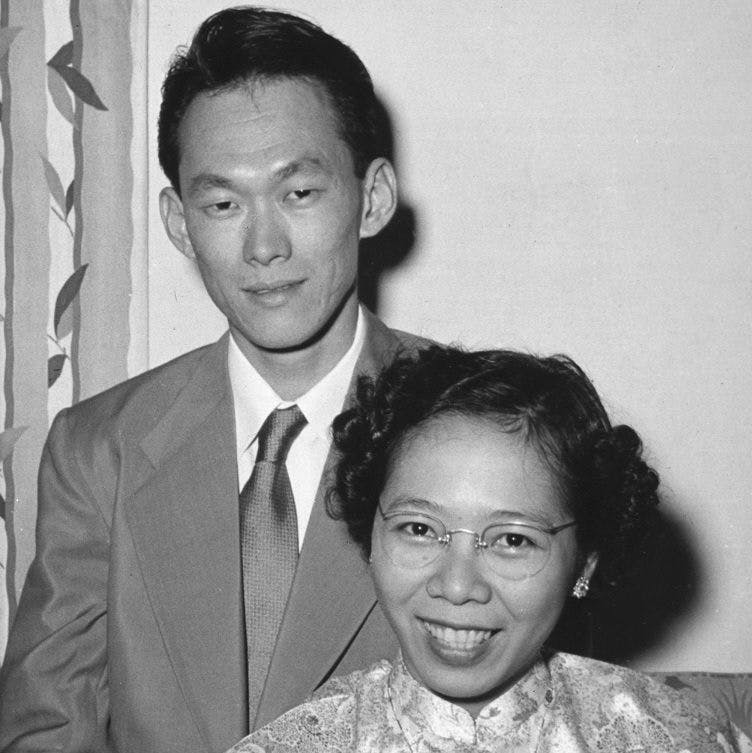

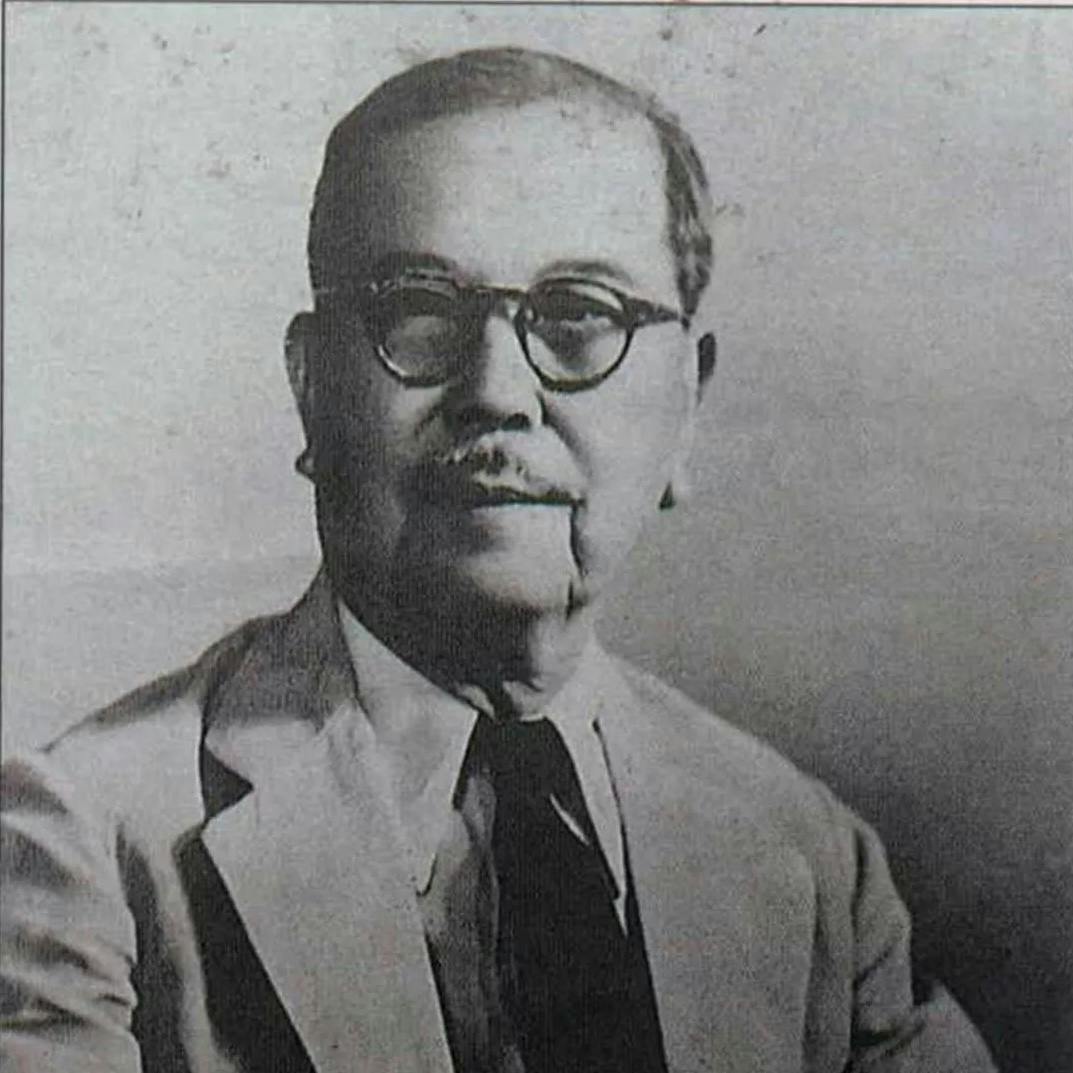
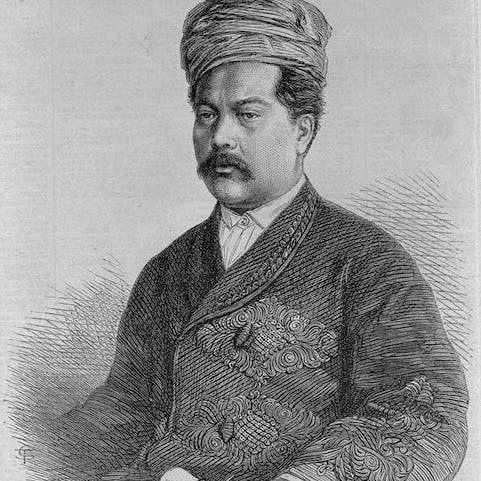


your podcast is amazing, I wanted to know wether there's any episodes about Chinese traditional arts and motifs?!
hi I am a student in shanghai. nice to meet you
Are long lists of dudes and their consists and heirs the all there is too history?
Hi, is there a reason for the missing podcasts?
Omdss thank you for this episode. I have an exam on China 1949-76 and the great leap forward is likely to come up. I have more facts from listening to this than my textbook I'm using. Thank you!
very informative!
wow. the commercial is way too long and annoying.
Really enjoyed this podcast. listened to over 30 episodes then listened to cultural revolution series and was really disappointed by the framing as really biased.
is there an episode on the history of porcelain?